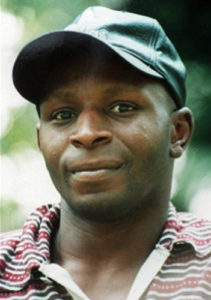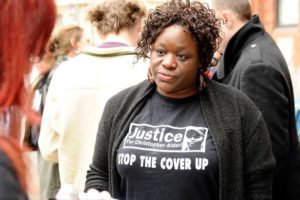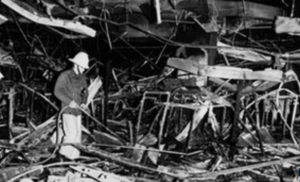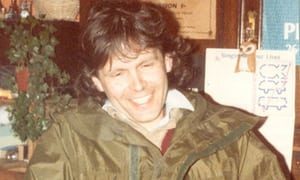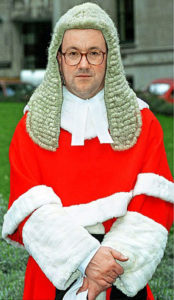50 Years of Resistance
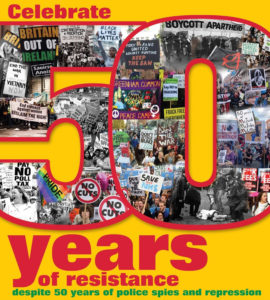 Join hundreds of people in London on the 7th and 8th of July to celebrate 50 years of campaigns, struggles, resilience and success.
Join hundreds of people in London on the 7th and 8th of July to celebrate 50 years of campaigns, struggles, resilience and success.
On the 7th of July we will be gathering from 12.30 pm at Grosvenor Square for a roll call of groups spied on. More information here.
On the 8th of July there will be a conference exploring five decades of movements for change, exhibitions, food, videos and talks at the Conway Hall. More information here.
Download the full programme as a PDF, or browse it here.
Follow us on Facebook & Twitter.
Email: 50yrsevents@gmail.com
WHY 50 YEARS OF RESISTANCE?
In 1968, following demonstrations against the Vietnam War in London’s Grosvenor Square, the police set up a Special Demonstration Squad (SDS). Since that time, 50 years ago, over 1,000 groups campaigning in the UK for a better world have been spied on, infiltrated and targeted by political policing. Their protests and demonstrations are also subjected to ongoing police opposition and control to try to limit their effectiveness
This targeting has included groups campaigning for equality, justice, the environment and international solidarity, for rights for women, LGBTQ, workers and for animals, for community empowerment, and those campaigning against war, racism, sexism, corporate power, legal repression and police oppression and brutality.
Such groups have represented many millions of people throughout the UK who want to make the world a better, fairer and more sustainable place for everyone. Yet almost any group of any kind that stood up to make a positive difference has been or could have potentially been a target for secret political policing. We now know this because of campaigners’ recent efforts to expose and challenge the SDS and other similar secret units, and their shocking and unacceptable tactics.
Individuals within those campaign groups have been spied on, subjected to intrusions in their personal lives, been victims of miscarriages of justice, and many deceived into intimate and abusive relationships with secret police, ie people that who were not who they said they were.
In July 2015 we succeeded in forcing Theresa May (now Prime Minister) to set up the current Undercover Policing Inquiry, which was tasked with getting to the truth by July 2018, and insisting on action to prevent police wrong-doing in future. Now, three years on, the public inquiry has achieved very little due to police obstruction.
When the SDS was formed they aimed to ‘shut down’ the movements they were spying on. But despite disgusting police tactics, movements for positive change are still here and growing, and have had many successes on the way.
The planned events are in support of those campaigning for full exposure and effective action at the Undercover Policing Inquiry, and against police attempts to delay and undermine it.
We aim to encourage more groups to find out about the Inquiry and how they can get involved and support each other, and to unite the many different groups and organisations who have been victims of our police state because of their efforts to improve society.
Saturday 7th July
12:30pm
Grosvenor Square, London W1K 2HP [Google map]
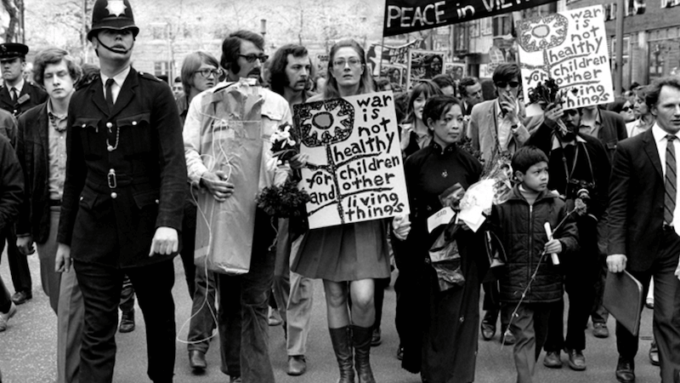
Demonstration against the Vietnam War, Grosvenor Square, London 1968
On the 7th of July we will meet in Grosvenor Square, the site of the demonstrations which led to the formation of the SDS, to hold a roll call of the groups that we have known to be spied on (see the list below).
Email us as soon as possible if you or another member of the group can attend – we know that many of the groups don’t exist anymore, we will let you know if someone else from your group writes in. 50yrsevents@gmail.com
PROGRESSIVE GROUPS & CAMPAIGNS TARGETED BY SPYCOPS, 1968-2018
121 Bookshop/Centre Brixton
Action to Abolish the Grand National
Activist Tat Collective
Aldermaston Women’s Peace Camp
All London March Against Racist Police Frame-up and Murder
Anarchist Communist Federation
Anarchist groups
Animal Aid
Animal Liberation Front
Animal Liberation Front Supporters Group
Animal Liberation Investigation Unit
Animal Rights Coalition
Animal Rights Gatherings
Anti Apartheid Movement
Anti Nazi League
Anti-Fascist Action
Anti-G20 protests
Anti-GM campaigns
Anti-Metrix / RAF St Athan Defence Academy
Arkangel
Active Resistance to the Roots of War
Badgers Animal Rights
Banner Books
Bedford Animal Action
Big Flame
Big Green Gathering
Black Power movement
Blair Peach Campaign
Block the Base / Menwith Hill
Brian Douglas campaign
Brian Higgins Defence Commitee
British Communist Party
Brixton Hunt Sabs
Broadwater Farm Defence Campaign
Building Workers Group
Camp Bling
Camp for Climate Action
Campaign Against Climate Change
Campaign Against Fur Trade
Campaign Against Police Repression
Campaign Against the Arms Trade
Campaign for Nuclear Disarmament
Cardiff Anarchist Network
Clandestine Insurgent Rebel Clown Army
Class War
Colin Roach Centre
Communist Party of England (Marxist-Leninist)
Consort Beagles campaign
Cowley Club
Dambusters Mobilising Committee
Delroy Lindo justice campaign / Police Crimes Against Civilians
Direct Action Against War Now
Direct Action Movement
Disarm DSEi Arms Fair
Disobedience Against War
Dissent!
Earth First!
Earth First! Summer Gatherings
Eat Out Vegan Wales
Essex Hunt Sabs
European Social Forum
Fairford Anti-War Campaign and Coaches
Federation of Local Animal Rights Groups
Free Steve Lewis Campaign
Freedom
Freedom Press
Globalise Resistance
Greenham Common Women’s Camp
Gwent Anarchists
Hackney Community Defence Association
Hackney Hunt Saboteurs
Hackney Solidarity Group
Harry Stanley family campaign
Housmans Bookshop
Hunt Saboteurs
Independent Labour Party
Independent Working Class Association
International Marxists Group
International Socialists
Irish National Liberation Solidarity Front
Islington Animal Rights
JJ Fast Foods Strike
Justice for Ricky Reel
KTS Autonomous Centre
Lee House squat
Leeds anti-fascist group
Leeds Action for Radical Change
Legal Defence and Monitoring Group
Leyden Street Chicken Slaughter House campaign
Live animal exports at Shoreham, Brightlingsea & Coventry
London Animal Action
London Animal Rights Coalition
London anti fur groups
London Anti-Fur Campaign
London Boots Action Group
London Greenpeace
London Pacifist Action
McLibel Support Campaign
Milford Haven anti-LNG pipeline
Molesworth Peace Camp
Movement Against A Monarchy
Movement for Justice
No Borders / No Borders South Wales
No Platform / Antifa
No to NATO
No to NIRAH
Northampton Hunt Sabs
Norwich activists networks
Nottingham Anti-Fascist Alliance
Nottingham Group Against Refugee Detention
Nottingham Hunt Saboteurs
NukeWatch
Operation Omega
Oscar Okoye justice campaign
Oxford Animal Protection
Palestinian Solidarity Campaign
Partizans
Peace News
Peace Pledge Union
Peat Alert!
Pembrokeshire Anarchists
Poll Tax demonstrations
Radical Dairy Squat
Radical Routes network
Ratcliffe-on-Soar action
RATS
Reclaim the Streets
Red Action
Reinstate Steve Hedley Campaign
Republican Forum
Revolutionary Internationalist League
Revolutionary Socialist Students Federation
Rising Tide
Save Gorse Wood campaign / tendon protest camp
Save Newchurch GuineaPigs
Save the Hillgrove Cats
Save Titnore Woods / Protect Our Woodland
Saving Iceland (UK)
Sea Shepherd
Sengul Family Must Stay Campaign
Shark Protection League
Shoreham Live Export protests
Smash EDO campaign
Socialist Party
Socialist Workers Party
South London Animal Action / Aid
South London Animal Movement
South Wales Anarchists
SPEAK Campaigns / Stop Primate Experiments At Cambridge
Stephen Lawrence Justice campaign
Stop Huntingdon Animal Cruelty
Stop the ’70s Tour
Stop the War
Student fees campaigns
Sumac Centre Nottingham
Swansea Animal Rights
The Common Place social centre / Leeds Social Centre Ltd
Trapese
Trevor Monerville justice campaign / Family and Friends of Trevor Monerville Committee
Tri-Continental
Trident Ploughshares
Troops Out Movement
Uist Hedgehog Rescue
UK Action Medics
Climate Justice Action / Never Trust a Cop
Veggies Catering Nottingham
Vietnam Solidarity Campaign
War Resisters International
Wayne Douglas justice campaign
West London hunt sabs
WOMBLES
Women’s Liberation Front
Workers Revolutionary Party
Yorkshire CND
Young Haganah
Young Liberals
Youth Against Racism in Europe
Zapatista coffee distribution
Sunday 8th July
CONFERENCE & GATHERING
10:00am
[Google map]
Please note this is a draft program and subject to change.
There will be a kids space, food, exhibitions, videos and stalls throughout the day. There are also break out spaces for more detailed discussions on spycops.
DRAFT PROGRAMME
10am Doors open: stalls, food and exhibition.
10:30 Introduction of the days, themes from the decades
11am Split up into 5 decades around the hall. Sharing of experiences, views, discussions and successes.
12:30 – 1:15pm LUNCH
1:15pm Welcome back.
1:20pm Theatre performance: The People’s Inquiry
3pm Plenary – where we are now, and what all can do
– Spycops
– Movements for change / The Future
4pm Event ends
We are looking for facilitators and people to help set up and take down. If you can help please email 50yrsevents@gmail.com
4pm leaving Conway Hall: Radical history walk
8pm Jackson’s Lane Theatre: Secret Spycops Ball comedy night – SOLD OUT
Logistics
We are hoping lots of people will join us from across the UK and beyond to take part in the 2 day celebration of resistance.
There is a Facebook page to help coordinate travel and logistics.
If you need accommodation or can provide accommodation please let us know at 50yrsevents@gmail.com

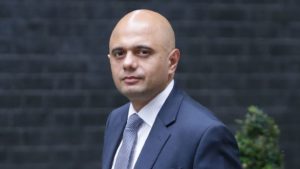
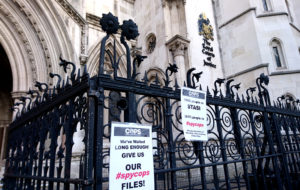 The Undercover Policing Inquiry is in crisis. Over-running by years before it has even begun, with a new Chair who has more hearings in secret than in public, victims and the wider public are finding themselves
The Undercover Policing Inquiry is in crisis. Over-running by years before it has even begun, with a new Chair who has more hearings in secret than in public, victims and the wider public are finding themselves 
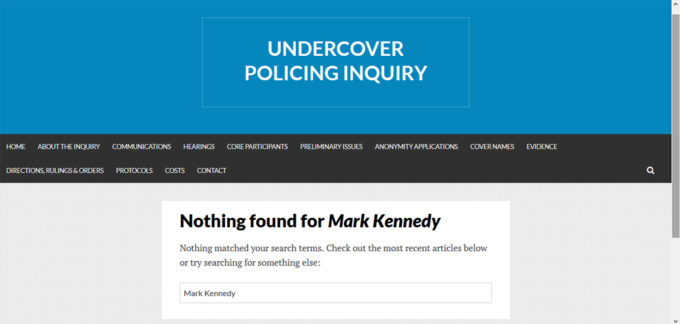

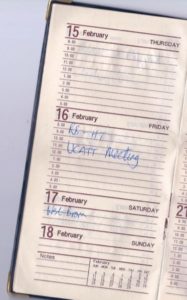
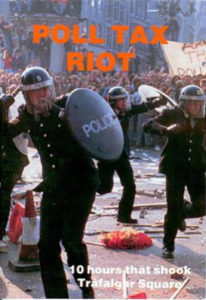
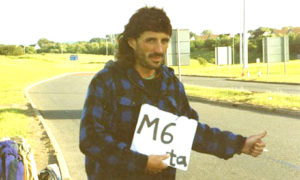
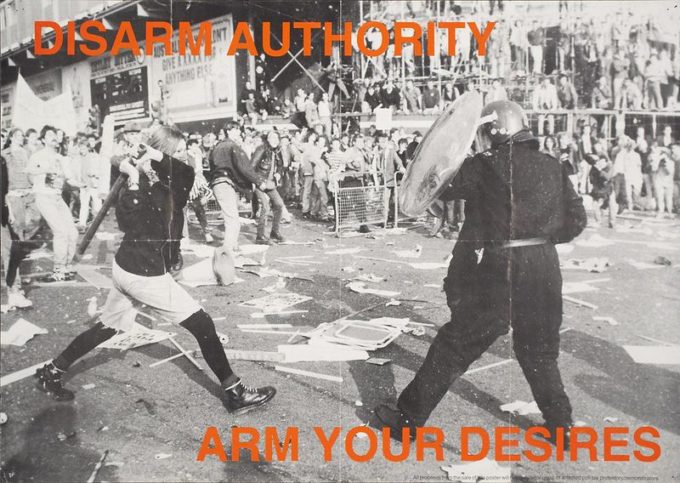
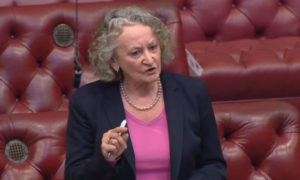 Last Wednesday, 21 March 2018, Jenny Jones (aka Baroness Jones of Moulsecoomb) probed the government about Britain’s political secret police in the House of Lords.
Last Wednesday, 21 March 2018, Jenny Jones (aka Baroness Jones of Moulsecoomb) probed the government about Britain’s political secret police in the House of Lords.